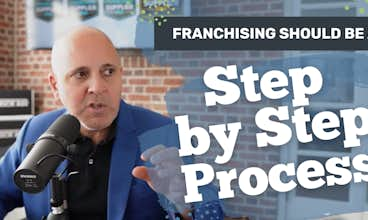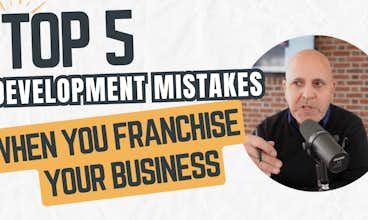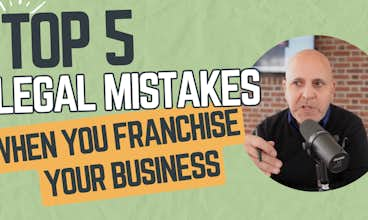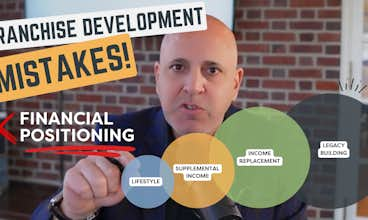Item 8 of the Franchise Disclosure Document
Within Item 8, the franchisor must disclose what products and supplies the franchisee must purchase or lease from the franchisor or the franchisor’s designated suppliers. The franchisor must also disclose revenue and rebates that the franchisor earned from selling source-restricted supplies and products to franchisees, as well as the existence of any purchasing or distribution cooperatives.
In the franchise world, consistency is critical for quality control and brand conformity. Because of that, franchisors sometimes restrict the suppliers that franchisees may purchase products and services from to preserve uniformity across the entire franchise system.
While those limitations can help maintain reliable quality and brand standards, franchisors should know that whenever they place restrictions on the sources of goods and services that franchisees must buy to establish or operate their franchised business, those restrictions must be disclosed in Item 8 of the Franchise Disclosure Document (FDD) under federal law.
In this article, we’ll discuss the types of source-specific purchases and other information that must be disclosed in Item 8 of the FDD to ensure compliance with federal franchise laws.
What Information Must Be Disclosed in Item 8?
Under the Federal Trade Commission’s amended Franchise Rule, franchisors are required to disclose 11 specific pieces of information, where applicable, related to any restrictions imposed on franchisees regarding the sources from which they must make obligatory purchases in the course of starting or operating their franchised business. For each obligation disclosed in Item 8, the franchisor must state the following:
Required Purchase/Lease of Goods and Services
Within Item 8 of the FDD, the franchisor must disclose any source-restricted obligatory purchases and/or leases imposed on the franchisee either in the terms of the franchise agreement or as part of the franchisor’s actual practice. Examples of such obligations might include the requirement that a franchisee purchases specific equipment, real estate, or other goods or services necessary to establish or operate the franchised business, from a specific supplier including the franchisor, its designee, its approved suppliers, or suppliers that meet the franchisor’s specifications.
Optional Purchases
Because Item 8 relates only to source-restricted obligatory purchases, optional purchases where franchisees have absolute freedom to choose the supplier from which they buy or lease goods or services do not need to be disclosed in Item 8.
Approved Suppliers
16 CFR § 436.5(h)(2) requires that franchisors disclose “whether the franchisor or its affiliates are approved suppliers or the only approved suppliers of that good or service” in Item 8.
Ownership Interest in a Supplier
Within Item 8, franchisors must disclose whether the franchisor or their officers own an interest in a required supplier. The FTC considers an officer to be an individual with management or policymaking authority within the franchisor entity.
The FTC also relies on a broad definition of “interest” for disclosure purposes within Item 8. In situations where a franchisor or an officer holding any percentage of direct ownership derives any income or financial benefit from the supplier, that interest must be disclosed in Item 8. This includes stock ownership in the supplier company. Because ownership interest requirements can be complex, it’s important to consult with an experienced franchise attorney when preparing your Item 8 disclosures.
Approval of Alternative Suppliers
For each obligation, franchisors must state whether the franchisee is permitted the right to use alternative suppliers for those purchases. If so, the franchisor must explain how that right is granted or revoked, including:
Whether the franchisor’s approval criteria are available to franchisees;
Whether franchisees are allowed to contract with alternative suppliers if they meet the franchisor’s approval criteria;
Any procedures or fees that franchisees must follow or pay to receive approval to make purchases from alternative suppliers;
The period during which the franchisee will be notified of approval or disapproval for the use of alternative suppliers;
The process by which approval for alternative suppliers is revoked by the franchisor.
Specifications and Standards
16 CFR § 436.5(h)(5) requires that franchisors disclose “whether the franchisor issues specifications and standards to franchisees, subfranchisees, or approved suppliers.” If so, the franchisor must state the process by which it issues and modifies those specifications and standards.
Revenue Derived from a Supplier
Within Item 8, franchisors must disclose whether they or any of their affiliates derive, or may potentially receive, revenue or other material benefits from required purchases or leases made by franchisees from the franchisor, its affiliates, or third-party suppliers (that is, any third party that may make payments to the franchisor or its affiliates as a result of the sale of their goods or services).
Payments to Third Parties
In situations where suppliers make payments to any third party that is directly or indirectly controlled by the franchisor or their affiliate, like an advertising fund or franchisee association related to a specific trademark, those payments must be disclosed in Item 8. However, payments made by suppliers to independent third parties not under the direct or indirect control of the franchisor or its affiliate do not need to be disclosed.
Extent of Required Payments
When disclosing revenue or material benefits derived from suppliers in Item 8, franchisors are required to provide a description of the “precise basis” upon which those benefits are received by the franchisor or its affiliates by stating:
The total revenue of the franchisor taken from the franchisor’s most recent annual audited financial statement (see Item 21);
The total revenue derived by the franchisor from all required purchases/leases of products and services;
The percentage of the franchisor’s total revenue derived from required purchases and leases;
The total revenue derived by the franchisor’s affiliates from all required purchases/leases of products and services.
Estimated Proportion of Source-Restricted Purchases/Leases
In addition to disclosing any revenue derived from required payments, 16 CFR § 436.5(h)(7) requires that franchisors disclose the estimated proportion of source-restricted purchases and/or leases compared to all purchases and leases that must be made by franchisees in the process of establishing and operating their franchised business.
Basis for Payments from Suppliers
Under circumstances where designated suppliers make payments to franchisors as a result of franchisee purchases, including the sale of similar goods or services by the supplier to the franchisor at a lower price than is offered to franchisees, the franchisor must disclose the basis for those payments.
Aggregate Reporting
When reporting the basis for payments from suppliers, franchisors do not need to itemize supplier payments in Item 8. Instead, franchisors need to disclose whether the payments are based on a flat rate or a percentage, including ranges if applicable.
Existence of Purchasing or Distribution Cooperatives
In situations where franchisees are required to participate in a purchasing or distribution cooperative, the franchisor must identify the cooperative in Item 8. The existence of voluntary cooperatives available to franchisees must also be disclosed in Item 8, but don’t need to be identified.
Negotiated Terms or Prices
Although franchisors are not required to disclose the specific prices or terms they negotiate with suppliers, they are required to disclose whether they negotiate purchase arrangements with suppliers for the benefit of franchisees in Item 8.
Material Benefits
Within Item 8 of the FDD, franchisors must disclose whether they provide material benefits to franchisees as a result of the franchisee’s use of specific suppliers or purchase of certain products or services.
Other Considerations
In addition to the required information above that must be addressed in Item 8, there are other considerations franchisors should keep in mind when preparing the disclosures in this section of the FDD.
Limitations on Item 8 Disclosures
It’s important to remember that the amended Franchise Rule only requires the disclosure of source-restricted obligatory purchases/leases of goods and services in Item 8 of the FDD. In situations where a franchisee has total discretion in selecting the suppliers from which they purchase a necessary product or service, that obligation does not need to be disclosed in Item 8. Franchisors also don’t need to include any purchase obligations or fees in Item 8 that have already been disclosed in Item 5 or Item 6 of the FDD.
Flexibility and Competitive Positioning
Finally, during the FDD development process, it’s critical to make sure the language of Item 8 allows flexibility for the brand to include different or new suppliers over time as it grows. Because best practices for preparing Item 8 can vary depending on the nature of the business, franchisors should seek the advice of an experienced franchise attorney when preparing Item 8 to make sure their FDD complies with federal franchise regulations.






